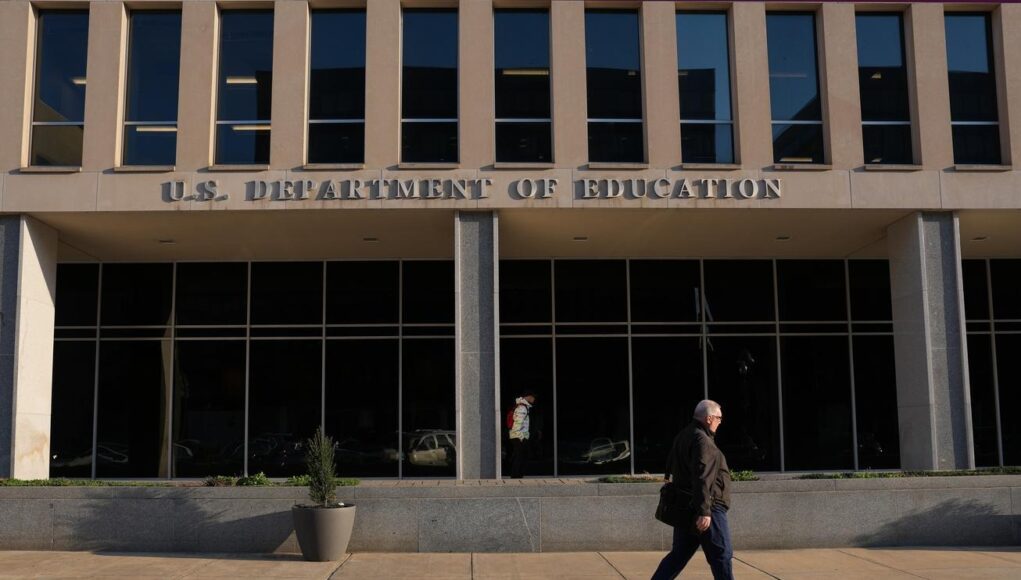In one of his recent sweeping executive orders on education, President Donald Trump took aim at the longstanding, but little known, quality-assurance agencies for American higher education: accreditors.
Any college worth enrolling at must be accredited by an independent, federally recognized accrediting agency. The agencies require schools to adhere to a set of standards, which cover everything from fiscal soundness to faculty qualifications and academic rigor. Without their stamp of approval, students aren’t eligible for Title IV student aid, including Pell grants and federal loans. In one of Trump’s recent, and intentionally vague, executive orders he argues that the agencies “routinely approve institutions that are low-quality by the most important measures,” citing the fact that in 2020, only 64% of undergraduates graduated within six years. Trump blamed colleges’ shortcomings on his favorite scapegoat—diversity, equity and inclusion—claiming that the accreditation agencies are focused on “compelling adoption of discriminatory ideology” and that they make “unlawfully discriminatory practices a formal standard of accreditation.”
This is false, according to Larry Schall, president of the New England Commission of Higher Education, which accredits more than 200 colleges, including Harvard University, Dartmouth College and Brown University. NECHE makes it clear in its standards that if any institution feels it’s being compelled to violate state or federal law, it should ignore the requirement, Schall explains. The agency also has no standards related to DEI. “If an institution has goals around diversity, equity, inclusion, we’d like to know what they are, and then we’ll hold you accountable to your own goals … but we have no DEI requirement,” says Schall, who has headed NECHE since 2020, and previously served as president of Oglethorpe University in Atlanta. “This is another place where there’s a lot of language thrown around about the idea that the DEI has weakened institutions. It’s not factually accurate, but it’s not the first time we’ve heard that language.” Fellow agency Southern Association of Colleges and Schools Commission on Colleges, which traditionally accredits colleges from Virginia to Texas and has been under fire from Republicans for years as Florida politicians seek to overhaul college curriculums, has no language in its accreditation standards about DEI.
In the order, Trump specifically called out the American Bar Association’s Council of the Section of Legal Education and Admissions to the Bar—the only government-recognized accreditor for Juris Doctor programs—for allegedly violating the recent Supreme Court decision barring schools from using race in admissions by prioritizing diversity in its schools’ student bodies. He also singled out for investigation the Liaison Committee on Medical Education and the Accreditation Council for Graduate Medical Education, which oversee doctor of medicine degree programs and allopathic and osteopathic medical residency and fellowship programs, respectively.
Any effort to shut down an accreditor would ultimately play out in federal courts, but there is precedent for dissolving an accrediting body. In September 2016, during the Obama administration, the Department of Education revoked recognition of the Washington, D.C.-based Accrediting Council for Independent Colleges and Schools, which at the time accredited 245 schools, many of them for-profit. The agency had been under scrutiny since two of its large for-profit chains, Corinthian Colleges Inc. and ITT Technical Institute, closed after investigations into fraudulent practices. A court battle ensued, and in 2018 then-education secretary Betsy DeVos restored ACICS’s federal recognition. By that time, many of ACICS’s schools had left or closed, and the Council for Higher Education Accreditation—essentially an accreditor of accreditors—did not recognize the agency. The Biden administration eventually pulled the plug on ACICS in August 2022, with only 27 institutions left under its review.
Schall and his peers weren’t surprised by the Wednesday executive order—they had waited weeks for it to drop. Part of the shake up is welcome, he says. The order paves the way for the Department of Education to recognize new accreditors, and Schall agrees that under the Biden administration it was too arduous for new agencies to come onto the scene.
As of March 2024, the federal government recognized 37 accrediting bodies. Prior to Trump’s first term, most public and private, four-year colleges were accredited by one of seven regional agencies—widely viewed as the most legitimate in the industry—which oversaw accreditation for institutions in specific parts of the country. NECHE is one of them. The largest, the Higher Learning Commission, accredits institutions from West Virginia to Arizona, including the University of Wisconsin-Madison and the University of Nebraska-Lincoln. The Western Association of Schools and Colleges primarily accredits California colleges, but its roster also includes a number of international schools.
Today, the seven accreditors call themselves “formerly regional,” Schall notes. In 2019, the Department of Education abolished the regional boundaries, allowing schools to shop around for an accreditor that suits them. NECHE has benefitted—the agency recently picked up Colgate University, research-focused Cold Spring Harbor Laboratory, Hamilton College, Hobart and William Smith Colleges, Sarah Lawrence College and Rockefeller University, to name a few. Still, dozens of other schools are waiting for the department to approve their requests to switch accreditors.
“I got a note this morning that’s saying they’re training a new person—literally one new person—to handle all of these [switch requests] and to expedite them,” says Schall. “We’ve had schools that have waited over a year to get permission to switch, and now [the administration] is saying they’re going to do them all in 30 days, and if you don’t get approval in 30 days, then you’re automatically allowed to switch.”
The seven former regionals, together under the name Council of Regional Accrediting Commissions, responded to Trump’s order with a fact sheet and statement of their own.
“Accrediting agencies are instrumental to promoting quality assurance and protecting student and taxpayer investments in higher education. While we firmly reject President Trump’s mischaracterization of accreditors’ role in the nation’s postsecondary education system, we stand ready to work with the Secretary of Education on policies that will advance our shared mission of enhancing quality, innovation, integrity, and accountability,” the council wrote.









